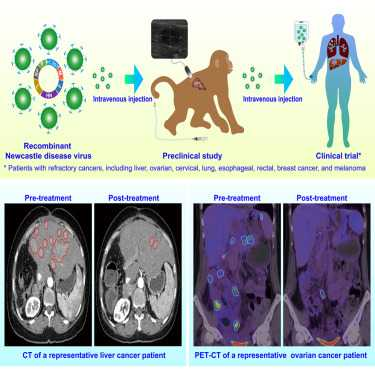A modified virus echoed the effects of an organ transplant
As our knowledge of science and the human body expands, so too do doctors have more tools at hand when treating cancer. One relatively recent development in this sphere is the use of oncolytic virus therapy, which — as its name suggests — involves using a customized virus to target tumors in the human body, then letting the body’s immune system go to work.
As Saima Sidik reports at Nature, a group of doctors largely based at multiple medical facilities in Nanning, China embarked on a study that echoed the behavior of the body when it rejects a transplanted organ. According to Nature, scientist Yongxiang Zhao drew inspiration from the way the human immune system reacts to transplanted pig organs. (Some successful xenotransplantations have taken place, but recently they’ve involved genetically modified organs.)
As the team describes in their paper, recently published in the journal Cell, they sought to overcome two issues: “intravenous safety and inherent lack of immunity.” In doing so, they used the Newcastle disease virus, modifying it an then testing its effect on monkeys. Once that had been successfully completed, the researchers began clinical trials in humans.
Nature reports that of the 23 people in the initial clinical trial, the vast majority saw some effect — though the virus caused some tumors to stop growing and others to shrink. The scientists concluded that the virus “could serve as an anti-tumor drug with significant clinical translation potential for advanced cancer patients.” For now, Sidik writes, the next step will involve more clinical trials on a larger number of patients.
Read more:
https://www.insidehook.com/wellness/scientists-record-breakthrough-treating-cancer-virus
















